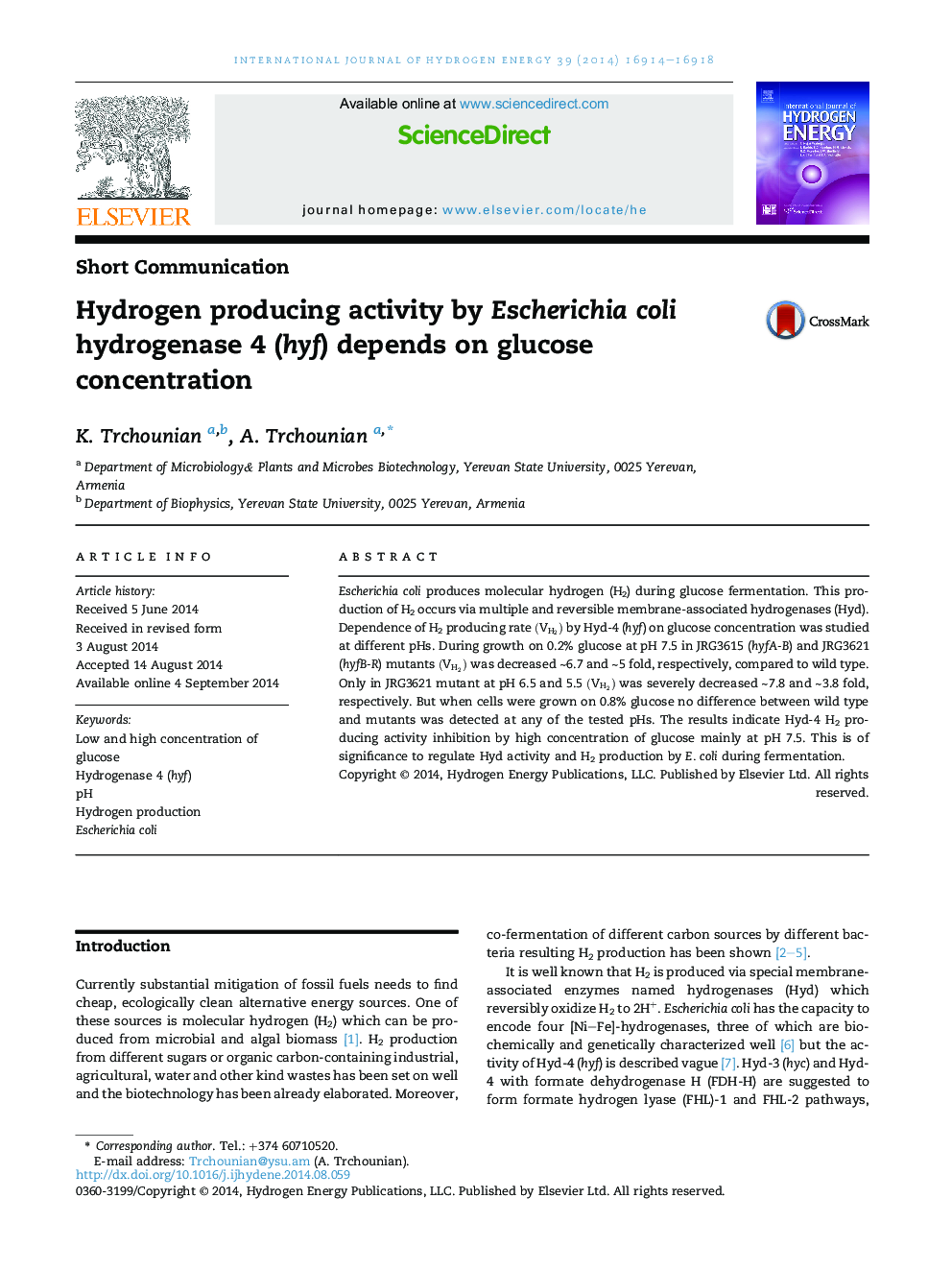| Article ID | Journal | Published Year | Pages | File Type |
|---|---|---|---|---|
| 1272147 | International Journal of Hydrogen Energy | 2014 | 5 Pages |
•Escherichia coli produces H2 via hydrogenases (Hyd) during glucose fermentation.•H2 producing rate (VH2)(VH2) of Hyd-4 (hyf) was studied using hyfA-B and hyfB-R mutants.•During growth on 0.2% glucose at pH 7.5 (VH2)(VH2) was decreased in hyfB-R compared to wild type.•During growth on 0.8% glucose no difference between wild type and mutants was detected.•Hyd-4 H2 producing activity is inhibited by high concentration of glucose.
Escherichia coli produces molecular hydrogen (H2) during glucose fermentation. This production of H2 occurs via multiple and reversible membrane-associated hydrogenases (Hyd). Dependence of H2 producing rate (VH2)(VH2) by Hyd-4 (hyf) on glucose concentration was studied at different pHs. During growth on 0.2% glucose at pH 7.5 in JRG3615 (hyfA-B) and JRG3621 (hyfB-R ) mutants (VH2)(VH2) was decreased ∼6.7 and ∼5 fold, respectively, compared to wild type. Only in JRG3621 mutant at pH 6.5 and 5.5 (VH2)(VH2) was severely decreased ∼7.8 and ∼3.8 fold, respectively. But when cells were grown on 0.8% glucose no difference between wild type and mutants was detected at any of the tested pHs. The results indicate Hyd-4 H2 producing activity inhibition by high concentration of glucose mainly at pH 7.5. This is of significance to regulate Hyd activity and H2 production by E. coli during fermentation.
